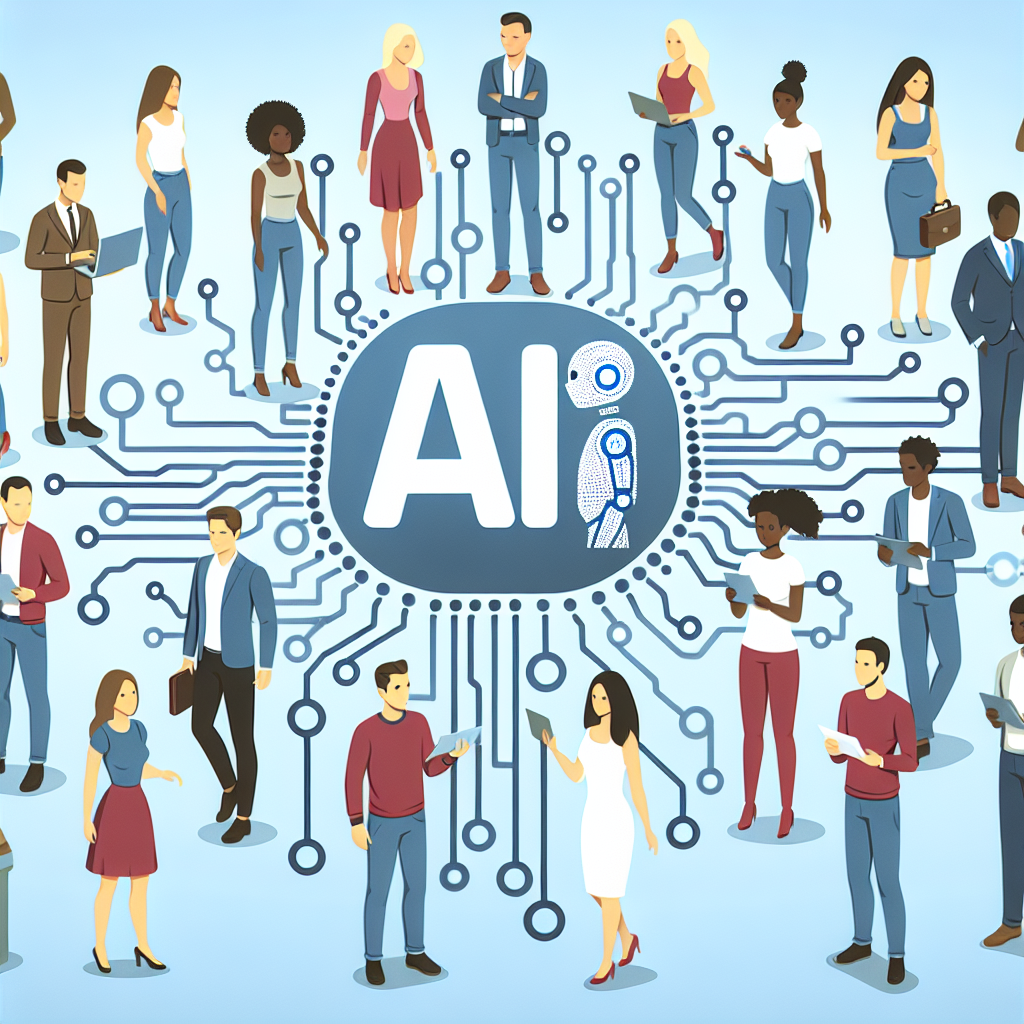Artificial intelligence (AI) has been a buzzword in the tech industry for several years now, but it has often been seen as something reserved for large corporations with big budgets. However, in recent years, AI has become more accessible to the masses, thanks to advancements in technology and the development of user-friendly tools and platforms. This accessibility has opened up a world of possibilities for individuals and small businesses to harness the power of AI to improve their products and services.
One of the key reasons why AI is becoming more accessible is the development of cloud-based AI platforms. These platforms allow users to access AI tools and resources via the cloud, without the need for expensive hardware or software installations. This means that even small businesses with limited budgets can take advantage of AI technology to enhance their operations and stay competitive in the market.
Another factor contributing to the accessibility of AI is the availability of pre-trained AI models. These models have been trained on vast amounts of data and can be easily integrated into applications without the need for extensive programming knowledge. This means that developers and entrepreneurs can quickly deploy AI solutions in their products without having to start from scratch.
Furthermore, the rise of AI as a service (AIaaS) has made it easier for businesses to implement AI solutions without the need for in-house expertise. AIaaS providers offer a range of services, from image recognition to natural language processing, that can be easily integrated into existing applications. This allows businesses to leverage AI technology without the need for a dedicated AI team.
In addition to these technological advancements, there has been a growing community of AI enthusiasts and developers who are sharing their knowledge and resources online. Platforms like GitHub and Kaggle have become hubs for AI enthusiasts to collaborate, share code, and learn from each other. This community-driven approach has democratized AI education and made it more accessible to individuals who are interested in learning about AI.
Overall, the combination of cloud-based platforms, pre-trained models, AIaaS services, and a thriving online community has made AI more accessible to the masses. This accessibility has opened up a world of opportunities for individuals and small businesses to leverage AI technology to innovate and grow their businesses.
FAQs:
Q: What are some examples of AI applications that are accessible to the masses?
A: Some examples of AI applications that are accessible to the masses include chatbots, image recognition tools, virtual assistants, and predictive analytics platforms. These tools can be easily integrated into existing applications and do not require extensive technical knowledge to use.
Q: How can small businesses benefit from using AI?
A: Small businesses can benefit from using AI in a variety of ways, such as improving customer service with chatbots, automating repetitive tasks with AI-powered tools, analyzing customer data to make better business decisions, and enhancing marketing campaigns with predictive analytics.
Q: Do I need to have a background in AI to use AI tools?
A: No, you do not need to have a background in AI to use AI tools. Many AI platforms and services are designed to be user-friendly and do not require extensive technical knowledge to use. Additionally, there are many online resources and communities where you can learn about AI and get support from other users.
Q: Are there any privacy concerns associated with using AI?
A: Yes, there are privacy concerns associated with using AI, particularly around data privacy and security. It is important to ensure that you are using reputable AI platforms and services that adhere to strict privacy regulations and guidelines. Additionally, it is important to be transparent with your customers about how their data is being used and stored.
In conclusion, AI is becoming more accessible to the masses, thanks to advancements in technology and the development of user-friendly tools and platforms. This accessibility has opened up a world of opportunities for individuals and small businesses to harness the power of AI to innovate and grow their businesses. With the right tools and resources, anyone can leverage AI technology to improve their products and services and stay competitive in the market.

